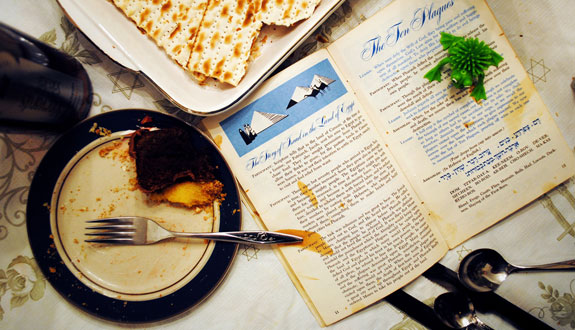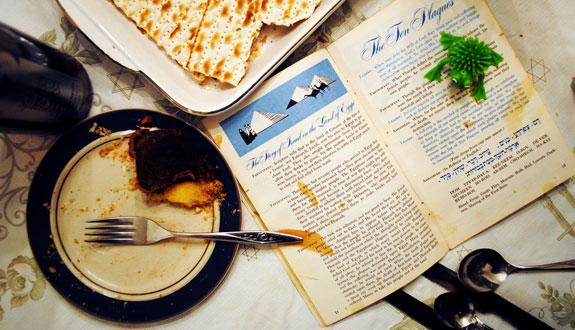Passover and the LSAT: Stop Whining. Start Wining
- by
- Apr 07, 2012
- LSAT, Odds and Ends
- Reviewed by: Matt Riley


For those of you who are fellow members of the tribe, the beginning of Passover draws nigh. If you’re a gentile, just go with this for about 300 words. Passover is a Jewish holiday meant to commemorate the Exodus, wherein God forced the Pharaoh of Egypt to free the Children of Israel from slavery through the use of plagues (locusts, frogs and the like).
Perhaps the most well-known part of Passover is the seder. What, you ask, does any of this have to do with the LSAT or LSAT prep? The seder, much like the LSAT, is a highly ritualistic and regimented endeavor. Everything must be done in the proper order and certain items are prohibited. After all, you can’t answer questions before you’ve filled out your Scantron sheet, and you can’t have your fourth cup of wine before the recital of the Hallel. You can’t bring a lunchbox into the LSAT and you can’t have leavened bread at a seder. So deal with it.
Much like LSAT study, certain aspects of a seder can prove unpleasant. Yes, LSAT reading comp practice can feel like unending tedium at times. After you’ve been to a seder, it’ll feel like a walk in the park. Think memorizing flaws is a tough pill to swallow? How about eating undressed romaine and horseradish? That’s what I thought. In the words of Detective John Kimble, “Stop whining.”
What else do a seder and the LSAT have in common? When you’ve studied as hard as you can for the LSAT and you’ve taken the test knowing you did all you could to prepare, you will feel a wonderful sense of accomplishment. And then you’ll likely find somewhere to imbibe. Similarly, once a seder is over, the participants feel fulfilled, having honored their ancestors and their struggle. They also feel pretty good after drinking four cups of wine.
What’s the message here? Endure. Follow the rituals. And you’ll do well on the LSAT. Plus, you’ll get to drink wine. Or something like that.
Search the Blog

Free LSAT Practice Account
Sign up for a free Blueprint LSAT account and get access to a free trial of the Self-Paced Course and a free practice LSAT with a detailed score report, mind-blowing analytics, and explanatory videos.
Learn More
Popular Posts
-
logic games Game Over: LSAC Says Farewell to Logic Games
-
General LSAT Advice How to Get a 180 on the LSAT
-
Entertainment Revisiting Elle's LSAT Journey from Legally Blonde








